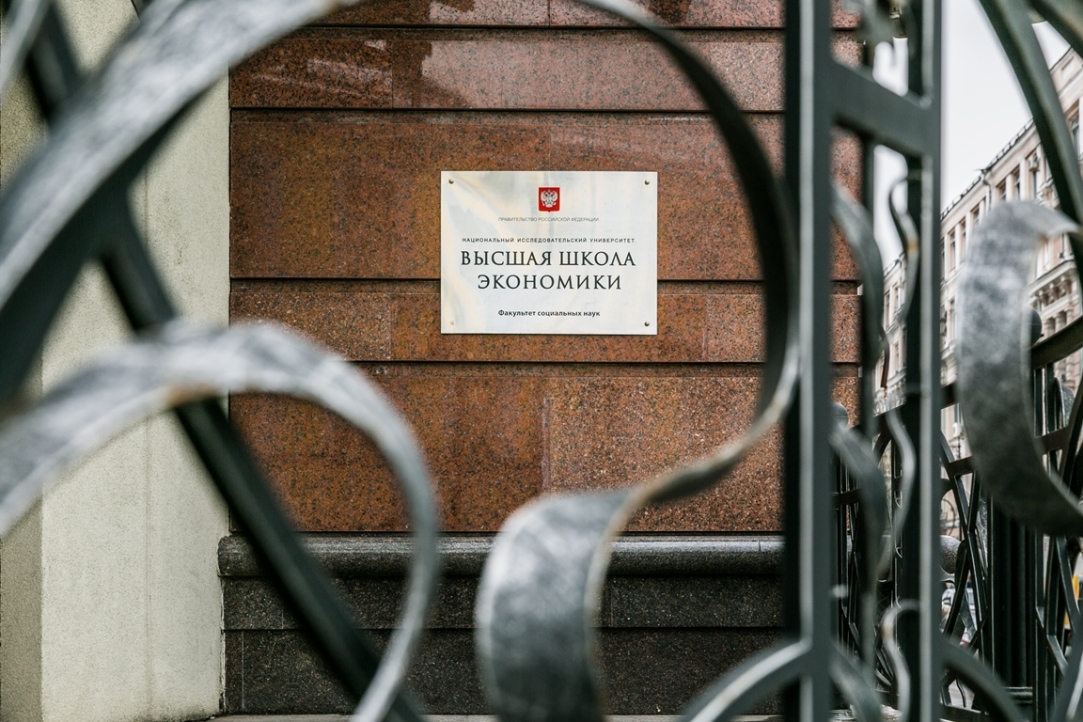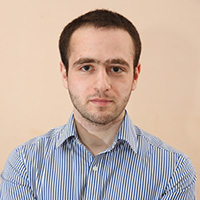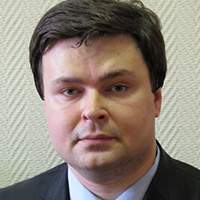‘Public Administration Is Impossible Outside of Real Politics’

In September, the School of Political Science and the School of Public Administration at the Faculty of Social Sciences will merge into the School of Politics and Governance. The opening of the newly unified school will bring big changes to the structure and contents of educational programmes.
Key achievements of the School of Political Science and the School of Public Administration:
![]() Top 100 of the QS subject ranking in Politics & International Studies
Top 100 of the QS subject ranking in Politics & International Studies
![]() 75th in the QS faculty ranking in Social Sciences & Management
75th in the QS faculty ranking in Social Sciences & Management
![]() The bachelor’s programme in Political Science is accredited by the ZEvA and is one of the leaders among Russian universities in terms of the quality of enrolment
The bachelor’s programme in Political Science is accredited by the ZEvA and is one of the leaders among Russian universities in terms of the quality of enrolment
![]() The bachelor’s programme in Public Administration is accredited by EAPAA
The bachelor’s programme in Public Administration is accredited by EAPAA
Why the Schools Are Merging
The subject areas of political science and public administration are closely inter-related. Many universities therefore situate these fields of study in single departments of politics and public administration (such as the London School of Economics, Harvard, Georgetown University, Cornell University and many others).
In addition to obvious subject intersections, these two fields are united by common career opportunities for graduates. As participants at the recent HSE University Academic Council session discussed, many graduates in Russia from programmes in political science, as well as in public administration, pursue careers at public institutions, non-profit organizations, as well as at public and municipal administration bodies. Of course, this does not mean that programmes in the two fields are identical. Each of them maintains an academic profile that focuses on the demands of the field and potential employers.
Andrey Klimenko,
Head of the School of Politics and Governance
I’d like to emphasize that a School at HSE University doesn’t directly work with students. Rather, its task is to develop the human resources of our degree programmes, which means working with lecturers, creating conditions for their research, and assessing their academic level, including publication activities.
In practice, the functions of a school turn out to be wider and often include analyzing programme and course efficiency, supporting student internships and projects, and helping to organize conferences, workshops etc. For example, the School of Public Administration has created a working group for organizing student projects that collaborate with or serve the current interests of governmental bodies. Thanks to this, student teams, starting from the second year of undergraduate studies, work on real projects, the results of which are really used in public administration, at public companies or non-profit organizations. Every year we receive letters of gratitude from top executives of these organizations.
As students implement project assignments, they get to know their potential places of work—the tasks and deadlines—which means they gain real-life experience with their potential employers. This is something that cannot be provided by an academic lecture in the classroom.
One more characteristic features of the new School is its close cooperation with HSE research institutes, first and foremost of which are the Institute for Public Administration and Governance and the Institute for Applied Political Studies. These institutes have received the status of associated departments with the Faculty of Social Sciences and will be more actively involved in designing the curricula of the School’s degree programmes, as well as the implementation and teaching of these programmes. In addition, lecturers and students of the School will have more opportunities to participate in the institutes’ projects.
What Students of Political Science Can Expect
We have worked on improving the curriculum for several months. The curriculum authors had the task of incorporating new elements while preserving the programme’s existing competitive advantages: the teaching staff and the core subjects that form the programme identity.

Ilya Lokshin,
Academic Supervisor of the Bachelor's Programme in Political Science
We are going to preserve our academic track in Political Analysis, which includes advanced methods of politics and society research, primarily quantitative ones. At the same time, we are reinforcing the track in Political Administration, thanks to closer association with practice-oriented work, reforms in profile subjects, and added electives.
The new subjects in the track in Political Administration will be taught by lecturers and experts invited by the HSE Institute for Applied Political Studies.
The programme will maintain its three required subjects in programming, which is a unique feature for political science education at Russian and most international universities. We are also leaving several courses in mathematical statistics and modeling. Expanding the list of elective courses will allow students to build more flexible individual study tracks.
What Students of Public and Municipal Administration Can Expect
The changes in the public administration programme have been planned and expected. They have passed international accreditation, and the steps to improve them require a more attentive consideration of competing universities’ development, as well as discussions with employers and international partners.

Vadim Prokofiev,
Academic Supervisor of the Bachelor's Programme in Public Administration
The classical triad of our students’ education is economics, law and administration. Now, thanks to the schools’ merger, the programme design will be able to undergo a minor but quite important change: its curriculum will be enriched with certain subject fields from political science. Obviously, public administration is impossible outside of real politics. The students will be able to better study the political aspect of administrative decision-making at public organizations. This will improve the quality of teaching and foster our graduates’ competitive advantages.
Senior students will be able to choose one of the two concentrations: Financial Management in the Public Sector or Administration in Socially Important Fields. They are highly relevant for the demands of the job market.
At the same time, the students will have an opportunity to choose a minor, in order to diversify their academic profiles, as well as take courses in programming and ICT. In the context of the economy and public administration, which are rapidly becoming more and more digitalized, these skills will certainly be useful for the graduates.
See also:
'I Have an Interest in Everything Related to Islam and Politics'
Mir-Ali Askerov became a scientist out of curiosity: initially, he read about the activities of radical Islamist groups, and later, he learned how to study them academically. In this interview with the HSE Young Scientists project, he explains why he chose to study moderate political parties in Central Asia, discusses the concept of God's sovereignty in lawmaking currently adopted in Afghanistan, and shares his fascination with Sufism.
‘It’s a Very Small Area of Political Science, and Working to Redress That Is Very Satisfying’
On March 15, Judas Everett defended his doctoral dissertation ‘The Effect of the Patterns in the Dissolution of Communism on the Transition to New Systems in Eastern Europe’, which investigates the relationship between the demise of communist regimes in Central and Eastern Europe and the quality of democracy in the post-communist regime. The defence took place remotely. His academic supervisor was Professor Andrey Akhremenko of the HSE University School of Politics and Governance at the Faculty of Social Sciences. In his interview, Judas talks about the topic of his research and explains why political science is more important than ever.
Cliometrics: 20th-century Revolutions Came in Waves
Having studied the 20th century revolutionary processes, Andrey Korotayev (HSE), Leonid Grinin (HSE) and Anton Grinin (MSU) have put together an extensive evidence base, proposed a new typology of revolutions and revolutionary waves, and introduced the concept of 'analogues of revolutions'. Their study '20th Century Revolutions: Characteristics, Types, and Waves' is the follow-up to an earlier paper published in Russian. The new findings are presented in Humanities & Social Sciences Communications.
Master's Programme 'Politics. Economics. Philosophy': Perfect Combination of Three Disciplines
Modelled on classical British programmes, the HSE Master's Programme 'Politics. Economics. Philosophy' (PEP) helps students delve deeper into economics and political science, broaden their philosophical outlook, develop their critical thinking skills, and enhance their social and academic capital. HSE News Services spoke with current first-year student Tamás Barnák and programme alumnus Franz Walternberger about why they chose PEP and what it is like to study at HSE University.
'State Owes Me': Social Justice, as Seen by Russian University Undergraduates
'I am the state' ('L'etat c'est moi') is a phrase attributed to French king Louis XIV. For Russian undergraduates today, the motto seems to be 'the state owes me'. According to many of them, the government must support younger people above all else, and this is what they understand by social justice. Read on to learn what else Russian undergraduates think about justice and why they are not willing to make sacrifices to achieve it, based on a paper by HSE political scientists Valeria Kasamara, Marina Maximenkova and Anna Sorokina.
Student Internship Programme at the
In April 2020, the Institute for Applied Political Studies (IAPS) launched an internship programme. Programme interns work together with Institute staff on joint projects, as well as acquire new research and communication skills. 40 students are currently participating in the programme
American Political Scientist Thomas Graham Speaks at HSE
On January 22, Thomas Graham, former Special Assistant to the President of the United States on Russian and Eurasian affairs (2004-2007), spoke to faculty and students of the Faculty of World Economy and International Affairs about the fundamentally competitive nature of US-Russia relations and prospects for cooperation between the two countries.
How Moral Obligation Drives Protest
Researchers have long studied the motives that inspire people to join in collective action. Three factors have received particular attention: anger caused by apparent social injustice; belief in the efficacy of collective action; and politicised identity. New studies have recently prompted a team of scholars, including a HSE researcher, to incorporate two additional factors into the existing model: ideology and moral obligation.
Democracy Isn’t for Everyone: Russians Adopt Western Values but See Them in Their Own Way
Europe wants to live in a democracy. This is especially true for residents of countries of Northern Europe, but less so for those of former socialist countries, especially Russia. While almost everyone has a positive attitude towards democracy, people have different understandings of it. Alla Salmina studied the relationship between attitudes and understandings of it using the data of 28 countries that participated in the European Social Survey (ESS).
Socialism on the Steppe: How Soviet Specialists Changed Life in Mongolia
‘We tried to give them a bright future.’ These are the words of engineers, construction workers, geologists, doctors and other specialists from the former Soviet republic regarding the years they spent in Mongolia. Those Soviet-era specialists are still united by the memory of trying to build something on such a grand scale and then seeing the whole project collapse. More than 100 members of that community agreed to be interviewed in-depth by political scientist Alexei Mikhalev. Here, he shares information from their collective memory with IQ.HSE.


